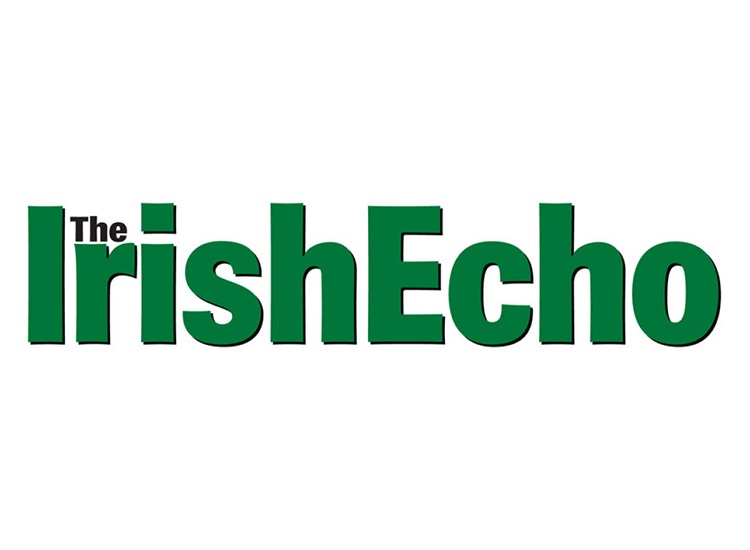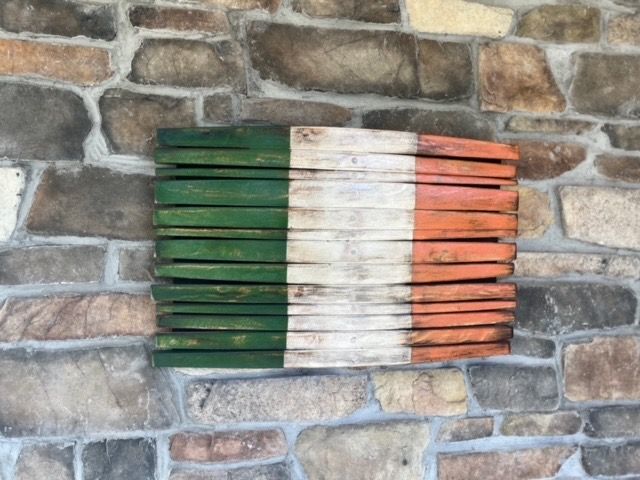That's the apparent thinking behind an initiative launched by seven Irish universities to raise their collective profile in America while attracting U.S. students to what is a somewhat cheaper option than the "arm and leg" one faced by U.S. parents with college-bound kids.
In what was described in a statement as "an ambitious campaign to boost collaboration between Irish and U.S. institutes of higher learning," representatives from the seven Irish universities came to New York and Washington last week to launch "The Irish Universities: Connecting Continents" initiative.
The seven involved in the program are: Dublin City University, the National University of Ireland Galway, National University of Ireland Maynooth, Trinity College Dublin, University College Cork, University College, Dublin and the University of Limerick.
In a move that didn't seem quite timely, but should have no particular significance, the visitors arrived in New York to be followed by a headline from Ireland announcing the winding up of the National University of Ireland, the statutory body governing UCD, UCC, UCG and Maynooth.
All four will now be entirely running their own affairs.
The seven university campaign was launched with two "Irish University Showcase" events, one in Washington, hosted by Ireland's ambassador to the U.S., Michael Collins, and the second in New York hosted by Consul General Niall Burgess.
"It builds on the long-standing interest of U.S. academics and students in Irish history, culture and literature, and aims to broaden the network of research partnerships shared by institutions of higher learning in both countries. It is also designed to draw new waves of U.S. students to Ireland for undergraduate and graduate studies," a statement on behalf of the seven said.
"The initiative will strengthen the ties that link the institutes of higher learning on both continents," said Tom Cusack, Director Americas at Enterprise Ireland in New York.
Enterprise Ireland is steering the campaign in America through an offshoot called "Education Ireland" and it hosted the visitors at a reception at the Irish Consulate in Manhattan.
"For decades, Ireland's universities and colleges have enjoyed a distinguished reputation in the U.S. for their traditions of research and teaching in the liberal arts. More recently, that reputation has extended to the social science, science, engineering, and medical disciplines," said Cusack.
"With interdisciplinary combinations that range from digital humanities to the latest nano-technologies, Irish universities have empowered generations of students with the knowledge and expertise that helped advance Ireland's competitiveness in the global marketplace," Cusack stated.
The Irish universities are already well embedded in U.S. academia and enjoy partnerships with universities such as Cornell, Georgia Institute of Technology, Harvard, the National Institutes of Health, Purdue, Stanford, the University of California, Berkeley, and Yale.
The Irish schools, while touting their educational wares, are also hoping that Americans will be lured across the Atlantic for reasons other than purely acdemic.
"For international students, the premier draw to Ireland is the generous hospitality, cultural traditions, diverse outdoor activities and a vibrant young population," said the statement.
"They are also attracted by the country's reputation for excellence in the liberal arts. From language and literature, to film and theater, Ireland's universities consistently produce renowned intellectuals and thought-leaders that inspire, enlighten and entertain the world."
The overall Irish package evidently bears fruit. In 2007/08, more than 6800 U.S. students selected Ireland for the study abroad portion of their university career. This was a 20 percent increase over the previous year.
"Among the full-time U.S. students, nearly 50 percent are liberal arts majors-pursuing undergraduate and graduate degrees at an affordable cost," said the statement in a reference to the obvious question for all U.S. parents facing American college fees.
According to the statement, through the Connecting Continents campaign, "tighter ties" will be forged between the institutes of higher learning in both countries.
Meanwhile, it was Irish education minister Batt O'Keeffe who announced the dissolution of the NUI.
"The central role of the NUI was significantly reduced in the Universities Act, 1997, and the need to have a separate body undertaking what is now a limited set of functions has been outlived. Work will now be carried out on redistributing the remaining functions of the NUI and it is envisaged that many of them will be undertaken by the constituent universities," said O'Keeffe.
Separately, and again coinciding with the U.S. visit of the seven universities, former European commissioner and Irish attorney general, Peter Sutherland, said that Trinity College and University College Dublin should be amalgamated so as to create one of the world's top ten learning institutions.
Sutherland, now chairman of the London School of Economics, also stated that the Irish government could not sustain seven universities without risking one of them going under.
"At the moment both are in the top 100, with one in the top 50. Would we have a top twenty player or even a top ten player to compete in the big leagues and if so wouldn't that be the best thing for Ireland?" Sutherland said of a possible merger.
"Surely, with a bit of imagination this could be achieved without compromising the rich and very different histories and traditions of these important national institutions," he added.
Last year, Trinity College was ranked 49th in the world, with UCD in 89th place, this in widely accepted survey compiled by the Times of London.










